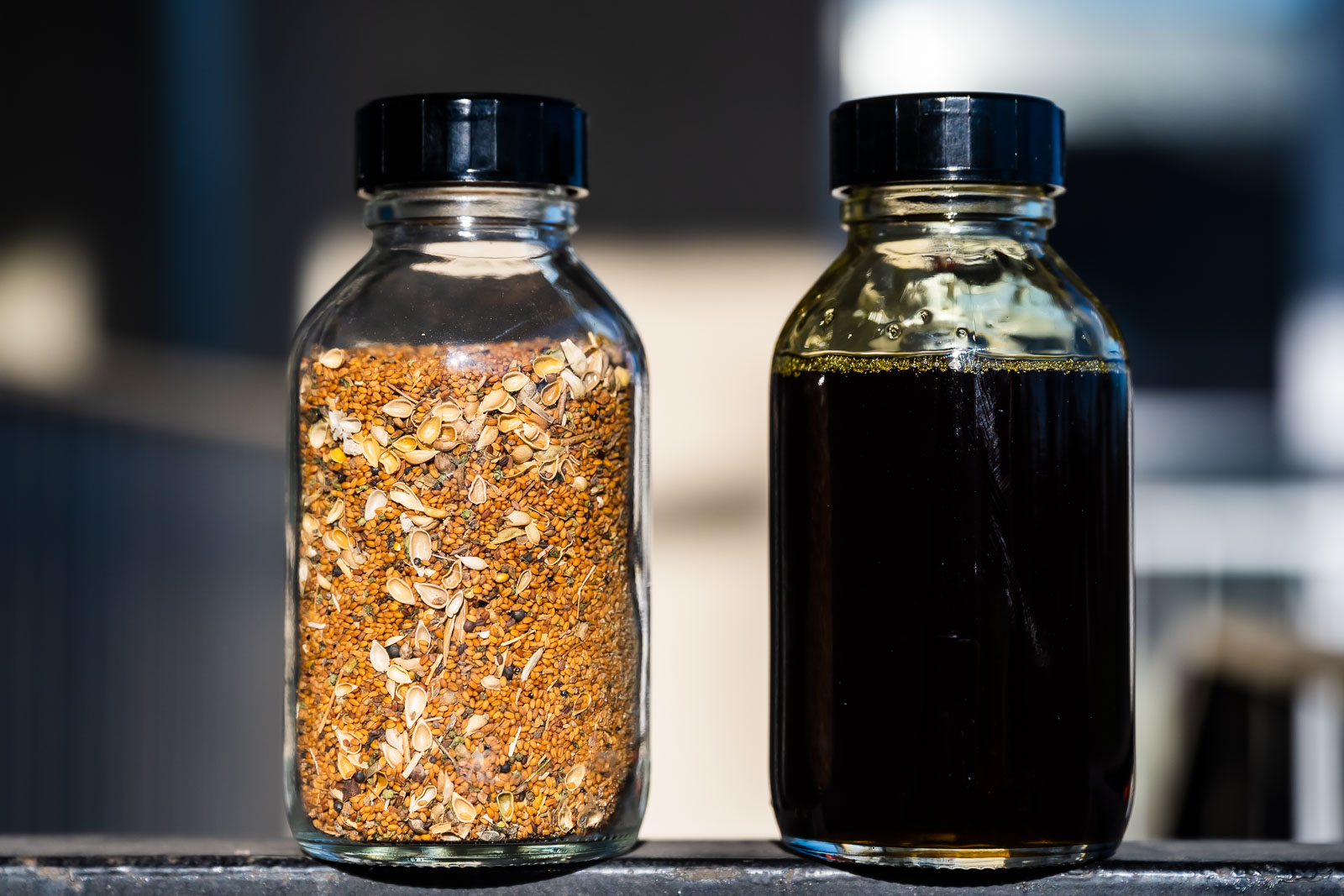In 2018, Saipol began piloting trials of intercropped camelina, also known as a summer catch crop, grown between two main crops. Saipol is helping implement camelina in France in order to develop production of vegetable oils for sustainable aviation fuels (SAF).
In 2024, Saipol launched the French market for intercropping camelina seeds by offering an attractive price to pioneering farmers interested in this new form of production, with the support of collecting bodies.
will be incorporated into aviation fuel by 2030
will be incorporated into kerosene by 2050
PARTNER COLLECTING BODIES TO DEVELOP CAMELINA INTERCROPS BY 2025
Camelina seeds for intercropping should be sown after an early-harvest crop, so that they can be planted before 10 July, ideally within 48 hours after the combine harvester passes. While camelina can withstand summer weather conditions, the other challenge is harvesting this tiny seed, which has to be done with well-calibrated equipment. From planting to harvesting, farmers need the support of a collecting body to ensure that camelina achieves its full potential.
This is why, during the development phase, the support of collecting bodies will help to ensure the success of this catch crop at every stage of production:
Limited eligibility
If you are a collecting body and would like to join Saipol’s camelina intercropping programme
Farmers not supported by a partner collecting body in 2025 must check their eligibility to join Saipol’s camelina intercropping programme using the form below:

Eligibility criteria
To find out more
The technical growing methods for intercropping camelina were developed in partnership with Camelina Company.
OUTLETS FOR CAMELINA INTERCROPS

Cameline and sustainable aviation fuels
The ReFuelEU Aviation project, led by the European Union as part of the Fit for 55 legislative package, sets targets for reducing greenhouse gas emissions from aviation, and provides a framework for developing the use of sustainable fuels to replace a portion of fossil-based paraffin within the EU. The goal is to reduce greenhouse gas emissions
by at least 55% by 2030.
In France, airlines are already required to incorporate 1% of sustainable paraffin as of 1 January 2022.
Under the European regulation adopted at the end of 2023, suppliers of aviation fuels to European airports with more than 800,000 passengers will have to incorporate a minimum of 2% sustainable fuels by 1 January 2025, then 6% in 2030, 20% in 2035 and up to 70% in 2050.


What they’re saying about camelina:

Cameline : une interculture valorisée à 600 euros la tonne pour le marché des carburants d’aviation durables
Dès 2024, Saipol va rémunérer des agriculteurs pour une production attendue de 2 000 tonnes de graines de cameline, avec un objectif de multiplier par cinq les volumes en 2025. Pour saisir cette opportunité, l’introduction de la cameline dans les rotations se réfléchit dès aujourd’hui.

Guillaume De La Forest (Saipol) : « La cameline en interculture, une réponse aux besoins de l’aviation en biocarburant »
Filiale du groupe Avril, Saipol s’intéresse, depuis 2018, à la cameline produite en interculture comme matière première pour alimenter les réservoirs des avions. Après plusieurs années de tests, la dynamique s’accélère : l’itinéraire technique est désormais calé, le process de fabrication aussi. Reste à séduire les agriculteurs et les organismes stockeurs de participer, eux aussi, à cette filière en plein essor. Le point avec Guillaume De La Forest, chargé de développement cameline chez Saipol.

Biocarburant : la cameline, une ressource attendue
Saipol annonce être acheteur de cameline dès l’interculture 2024 à 600 €/t : l’immense marché des carburants durables, notamment pour l’aéronautique, pousse l’intérêt pour cette nouvelle matière première dont les tourteaux sont attendus dans les silos des fabricants d’aliments pour animaux comme nouvelle source de protéines.

La cameline, une petite graine qui a de l’avenir
D’abord introduite dans les mélanges d’espèces pour couverts végétaux, la cameline est aussi cultivée seule, en dérobée au printemps ou en interculture d’hiver. Ses graines peuvent alors être transformées en biocarburant pour le secteur aéronautique.

Pourquoi la cameline interculture se verrait bien pousser des ailes
Testée depuis 2020 par plusieurs OS, la cameline veut s’installer dans le paysage des biocarburants durables pour l’aviation avec une cotation envisagée par Saipol de 600 €/t de graine dès cette année et une « garantie récolte » en cas d’échec de la culture.
